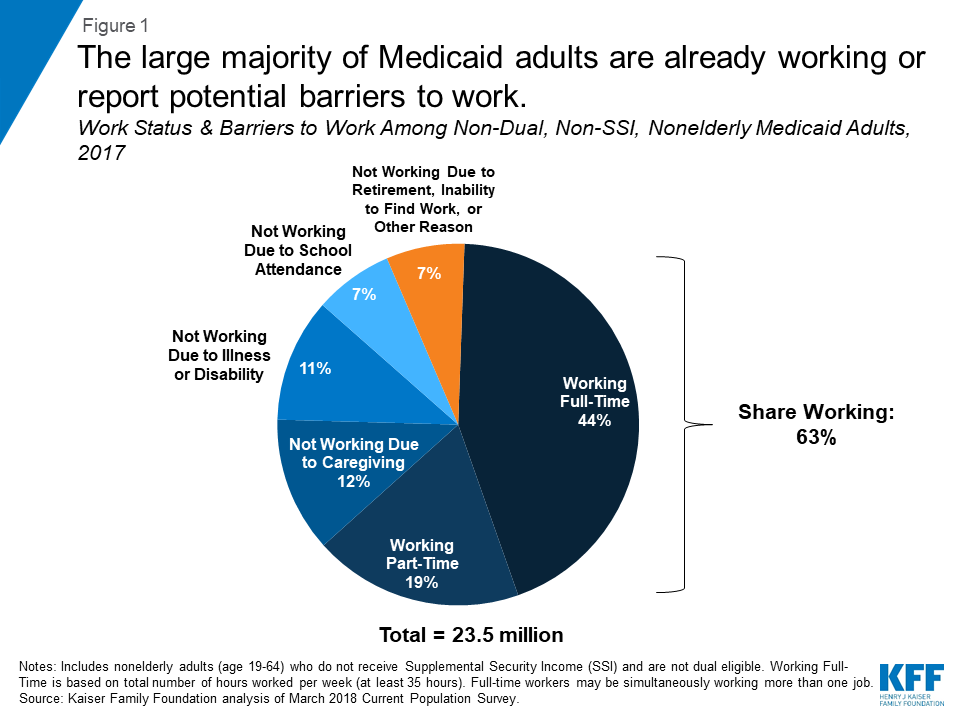
The article has been updated with statistics where indicated. Myths about Medicaid law abound. Elder Law attorneys mdeicaid practice in this field know most of. A variation on this one is that the applicant will have to give her house to the government or the nursing home. Medicaid is a means-tested program — or, as most lay people would put it, a welfare program — meaning that the Medicaid recipient can have only a minimum amount of assets in order to qualify. So, most people understand that if they give away assets in order to qualify for Medicaid, they will be «penalized. To some people, «penalized» means «punished,» as in committing a crime and being fined or even going to jail.
Site Index
Medicaid is the public health insurance program available to people with low incomes. It covers more than 72 million Americans, making it the single largest provider of health insurance in the U. Unlike Medicare , the federal health insurance program primarily for people ages 65 and older, Medicaid is run jointly by federal and state governments. So, although your state government determines many benefits, all state Medicaid programs must meet certain minimum federal standards. However, if you are eligible for Medicaid, your entire family will be on Medicaid when you are accepted. Most states have expanded Medicaid and more are expected to do so. If your state did not expand Medicaid and you have no children, your chances of qualifying based on income alone are low. Medicaid covers a lot of the same medical services a traditional health insurance plan would. Hospital care and doctor visits are paid for with low or no copays for adults and children alike. Though states determine their own Medicaid benefits, they are required to cover certain services.
How to qualify for Medicaid

At any given moment, there is a large group of citizens who want nothing more than to make absolutely certain that they are impoverished enough to qualify for Medicaid sooner rather than later. Someday, you might be one of them. Once properly impoverished under the law, then Medicaid, which gets funding both from your state and the federal government, picks up the tab. Whatever twists and turns the health insurance debates in Washington take, Medicaid will be at the center, and the program will probably affect you and your family more than you know. After all, if you run out of money in retirement, it is Medicaid that pays for most of your nursing home or home-based care. The bill that contains the caps that Republican senators have proposed, which would remake Medicaid, seems for now to have a low chance of passing. In my first Medicaid column on June 30, I asked for your questions about the program, aging and long-term care, and you sent me more notes about the ethics of Medicaid planning than on nearly any other topic. About half of you were outraged by the ethical implications, and the rest wanted to know where you could sign up for it. What are we talking about when we talk about Medicaid planning? First, you have to qualify. A lawyer experienced in the field is a necessity.
What Medicaid pays for
Persons with dependent minor children whose income is too high for Medicaid may qualify for the State Children’s Health Insurance Program. All Rights Reserved. The material on this site can not be reproduced, distributed, transmitted, cached or otherwise used, except with prior written permission of Multiply. Hottest Questions. Previously Viewed.
Maximize Your Benefits Without Going Broke
Medicaid is a state-operated program that provides medical care coverage for certain low-income bow and families with limited resources. Source: Kaiser Family Foundation People often confuse Medicare and Medicaid, but the two programs are different in a number of ways, including the following. This guide explains some of those topics and mney whether Medicaid may be an option for covering care-related expenses for seniors. Because determining eligibility for Medicaid can be complex, that topic is covered in depth later in the article. This section explains some basics about how Medicaid works, including what it covers and how to use it. First, individuals who are eligible for Medicaid coverage may have it as their only health coverage or in conjunction with another plan including Medicare. What it means is that Medicaid will pay after hou other payer has paid its share of the services provided. For example, if you have Medicare or any type of private health care coverage, Medicaid will always be the secondary payer. Health care providers will bill the primary payer first, and Medicaid will then consider the claim and may pay any balance due after the primary payer has paid. Mucg certain cases, if someone is receiving Social Security benefits, a nominal deduction hoq be made from those benefits, depending on total resources and income, to help supplement the cost of Medicaid coverage. Otherwise, the program provides percent coverage for most medical expenses and does not require payment of premiums or deductibles. In addition, health care providers who accept Medicaid uow bill the patient for any additional charges after Medicaid has adjudicated the claim, as they can with Medicare. The reverse is not true.

Comments
Post a Comment